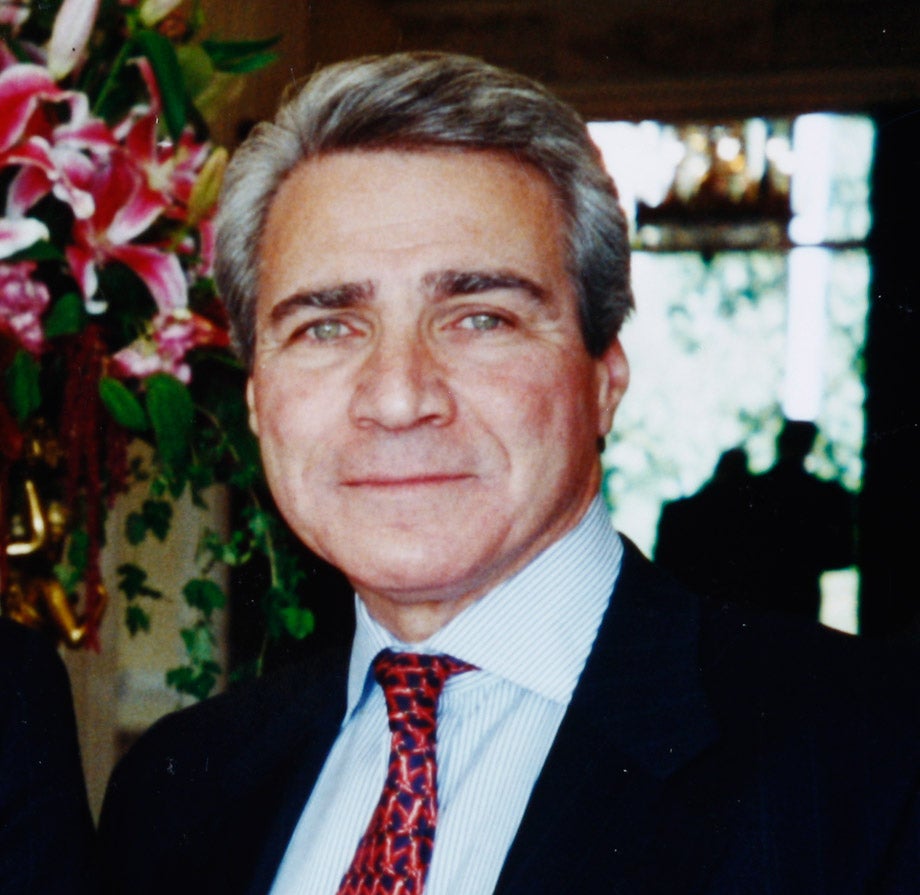Philip Lader ’71 jokes that he has “spent 25 years doing almost anything to avoid practicing law.” And everyone from Australian university students to the president of the United States has benefited from his alternative choices.
Lader’s career path has moved from land management to academia and politics, and has culminated in his current position as U.S. ambassador to the United Kingdom.
Known for both his business acumen and networking skills, Lader credits his most recent opportunity to having met Bill Clinton through mutual friends in 1978.
Clinton and seven presidential candidates have attended Lader’s annual retreat at Hilton Head Island, S.C., known as “Renaissance Weekend.” Lader and his wife started the event in 1980 to “bring together talented contemporaries and their children to see if serious people spending a quiet, relaxed time together could come up with important ideas for the future.”
Despite the weekend’s emphasis on brainstorming, Lader enjoys activity as much as he does reflection. He combined the two soon after he was appointed ambassador, when he walked the length of England and Scotland on successive weekends in 1997 and 1998.
Lader said the words of 19th-century American writer Washington Irving inspired his weekend hikes. Irving, who served in the U.S. delegation to Great Britain for two years and later was named ambassador to Spain, knew how to gain insight into the British psyche. “Irving said, ‘To understand the British, you have to venture into the countryside,’” according to Lader.
Although historical and literary references help Lader appreciate his host country’s past and present, he believes economics will define its future, and he has spent a great deal of his tenure focusing on investment, technology, and trade issues. He believes these issues are analogous to the international security agreements that shaped the world in previous generations.
As for his own future, the Washington Post has speculated that Lader might make a run for South Carolina Senator Strom Thurmond’s seat if the 97-year-old Thurmond retires. Lader said he has been trying not to think beyond January, when his appointment ends.
But if the past is any evidence, finding novel opportunities won’t be a problem.
In 1972, after graduating from HLS, Lader planned to follow a set legal path and briefly worked for a New York law firm before accepting a clerkship with the U.S. Court of Appeals for the Fifth Circuit.
And then things got
interesting.
When the clerkship ended, Lader’s environmental and planning interests led him to the Sea Pines Company, a South Carolina development firm that created resorts such as Kiawah Island. During that time, Lader also served on the board of trustees of several area colleges, and in 1983 he became president of South Carolina’s Winthrop University.
After winning accolades for improving the university, Lader resigned to run for governor of South Carolina but came in second in the state’s Democratic primary. Lader then segued to a land management job with a British firm for four years, before heading to Washington, D.C., as president of Business Executives for National Security, a group of business leaders concentrating on defense issues. While in Washington, Lader was recruited by a search firm to serve as president and vice-chancellor of Bond University, Australia’s first private university.
After 18 months, Lader returned to the United States to take a post as deputy chief of staff in the Clinton administration, and soon thereafter the president appointed him to head the U.S. Small Business Association.
Lader said he planned to return to private life in 1996 but was pleased when he was nominated for the ambassadorship that year. He jokes that he may continue to do the unexpected when his term ends.
“I guess I’ll go back and interview with some law firms,” said Lader.
–Nancy Knapp
